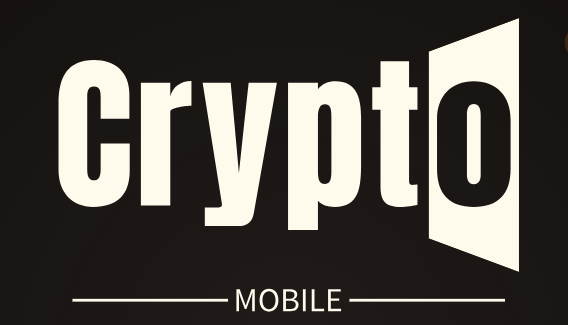What Is A Cryptocurrency Wallet?
Definition.
Cryptocurrency wallets or crypto wallets are a safety wallet for all your cryptocurrencies. Today, most crypto wallets can perform several functions such as, they also allow you to send, receive, and spend your cryptocurrencies.
How Do Cryptocurrency Wallets Function?
Instead of holding these physical items, it stores the private keys (the passwords that give you access to your cryptocurrencies) you use to sign for your cryptocurrency transactions and provides the interface that lets you access your cryptocurrency on the blockchain.
They come in many forms, from hardware wallets like Ledger (which looks like a USB stick) to mobile apps like TrustWallet etc.
Types of Cryptocurrency Wallets.
The are two main types of wallets, custodial and noncustodial. Custodial wallets are hosted by a third party that stores your keys for you. This could be a company that provides enterprise-level data security systems businesses use to preserve and secure data. Noncustodial wallets are wallets in which you take responsibility for securing your keys. This is the type that most cryptocurrency wallets on devices are. There exist two broad categories of crypto wallets: hot wallets that are connected to the internet and cold wallets that are not. These wallets are now found as either paper wallets, hardware wallets or software wallets with each either being a cold or hot custodial or noncustodial wallet.
Paper Wallets.
A paper wallet is the simplest cold wallet to understand and operate. It is what it sounds like: A piece of paper with your keys written on it.
These evolved to include the keys and QR codes so wallets on mobile devices could scan them. However, paper wallets are easily damaged or lost, so many crypto owners do not use them anymore.
Hardware Wallets.
Hardware wallets are the most popular type of wallet because you can store your private keys and remove them from your device. These devices resemble a USB drive, and modern hardware wallets have several features.
You can make a cryptocurrency transaction on your computer or device by plugging in the hardware wallet. Most of them can sign cryptocurrency transactions automatically without requiring you to enter the key, circumventing a hacker’s ability to log your keypresses or record your screen.
Software Wallets.
These wallets include applications for desktops and mobile devices. These wallets are installed on a desktop or laptop computer and can access your cryptocurrency, make transactions, display your balance, and much more. Some software wallets also include additional functionality, such as exchange integration if you’re using a wallet designed by a cryptocurrency exchange.
3 Best Software Cryptocurrency Wallets for Beginners.
These software wallets are chosen because of their flexibility (available to both mobile and desktop devices either through an application or browser extension), their ease of use, security, and/or low cost.
Trust Wallet
Trustwallet stores over 10M+ assets from over 100+ blockchains. It provides other features such as buying crypto, swaping, staking, NFts and more. There exist a mobile app and a browser extension.
Trust Wallet comes as a mobile application and a browser extension.
It provides beginner friendly, and easy to use interfaces for both the mobile application and browser extension.
It enforces security measures that keep you in control of your assets and data, while keeping them safe. Such measures include; their Encrypted Cloud Backup for increased wallet security, alerts on risky cryptocurrency addresss and dApp connections, and more.
Like most software wallets, trust wallet is free to download and use. You only pay for the miners and validators of your transactions on the blockchain.
Exodus Wallet
Exodus wallet is a multichain crypto wallet that supports over 50+ crypto networks. This wallet allows you to buy, store and swap your crypto.
Exodus has a desktop wallet with optional trezor integration, a mobile wallet, and a web3 wallet for chrome and brave browsers.
Exodus wallet being cross-platform makes it easy accessible to numerous devices. This makes it easy to obtain and use. It also has one of the best user-interfaces for a cryptocurrency wallets. This makes it easy to navigate.
The Exodus + Trezor partnership combines the advance security of a hardware wallet with the ease of use of a software wallet making it more fluid and secure. With this, you can manage and track your cryptocurrencies in your exodus wallet securely from your trezor.
There are no exodus wallet fees. Like other software wallets, you only have to deal with transaction fees.
Guarda Wallet
Guarda wallet is a multichain crypto wallet. It allows you to top up your prepaid visa card with crypto. You can also buy crypto, earn it through staking or exchange one crypto for another.
Guarda wallet is also a cross-platform wallet. It has a mobile application, desktop application and an online wallet (a wallet you can access through your web browser).
As a cross-platform multicurrency wallet, guarda provides access to your crypto anywhere. It has a beautiful and simple interface that allow fluid and easy access to your crypto. The ability to top up a visa card with ease with your crypto on guarda wallet makes it one of the best crypto wallets out there.
Guarda wallet is a secure multicrypto wallet providing you an extra security layer with multisignature. The core values of the guarda wallet are; “freedom of privacy and top level security”. They take security seriously.
With guarda wallet, the following fees are available based on what you do.
- Transaction fees: The fees you pay for doing transactions on the blockchain. Guarda does not collect anything from this are they go to the miners and/or validators of your transactions.
- Exchange fees: According to guarda support, Exchange fees are set by their exchange partners the these partners collect a commission of about 0.5% per transaction. You will also need to cover the network transaction fees. All the fees are included in the exchange rate.
- Buy crypto: Gaurda says, their fiat-to-crypto and crypto-to-fiat partners charge fees that can range from 2% of the transaction and down depending on the volume of traffic.
Alternate Software Cryptocurrency Wallets.
Here is a list of other software cryptocurrency wallets that might be interesting to look at.
3 Best Hardware Cryptocurrency Wallets for Beginners.
These wallets are chosen because of their heightened security, Key management/ownership (Not your keys, Not your crypto), and multichain support.
Safepal.
Safepal is a user-friendly, cross-platform cryptocurrency wallet. It provides a variety of cryptocurrency hardware wallets to safeguard your assets.
Safepal provides numerous security solutions for it’s products (mobile wallet, browser extension and hardware wallet). According to the safepal website, safepal gives you control of your assets with secure cold storage options such as; the fully air-gapped and 100% offline SafePal S1 line, or the new open-source Bluetooth X1.
Safepal is ensures that your private keys never leave your non-custodial wallet. This ensures that not even safepal has access to your keys.
Safepal is cross-chain compatibility making it easy to do a multitude of tasks from; NFTs trading to blockchain gaming, and more, all from the safety of your crypto wallet.
Price: $49.99 – $89.99.
Trezor.
Trezor supports over 9000+ coins and tokens, has an elegant design with hightened security.
Trezor provides a security boost with a Secure Element chip nested in a solid, seamless, and weather-resistant device housing. This ensures that your crypto is securely in your control.
According to trezor.io, trezor wallets use a secure hardware random number generator to generate private keys. The process of generating the private keys is done offline ensuring that your keys never leave your trezor device. The private keys are then used to generate public keys through complex mathematical operations, creating a matched pair.
These private keys are stored offline reducing the potential of them getting hacked and the risk of you losing your crypto.
Trezor supports multiple cryptocurrencies. It also has the added benefit of having multiple accounts created making it easier to manage your cryptocurrencies.
Price: $59 – $179.
Ledger.
With the ledger, you can buy, exchange, grow and manage over 5,500 coins and tokens.
Ledger secures more than 50 software wallets. With the use of its Secure Element Chip, ledger ensures that your crypto is keep safe.
Ledger stores your private keys in a secure, offline environment giving you complete control over your assets. Its industry-leading Secure Element chip works together with the ledger proprietary OS to protect your crypto & NFTs from sophisticated hacks.
Ledger also supports a multitude of cryptocurrencies, enabling you to buy, swap, send/receive the available cryptocurrencies.
Price: $79 – $279.
Alternate Hardware Cryptocurrency Wallets.
Here is a list of other hardware cryptocurrency wallets that might be interesting to look at.
Seed Phrase Safety: Simple methods.
Below, we look at a few simple methods of keeping your cryptocurrency wallet’s seed phrase safe.
- Keep your seed phrase offline: You could either use a pen an paper or a metal backup tool such as a cryptosteel capsule or cassette.
- Never share your recovery phrase with anyone. A wallet seed phrase something that should be kept top secret as it can give anyone complete access to your cryptocurrency wallet.
- Store your seed phrase in a personal safe or safety deposit box in a secure undisclosed location.
Helpful Cryptocurrency Wallet Guides?
We have searched the internet and looked for helpful beginner guides to get you started on cryptocurrency wallets. As always, these resources are meant to better educate you, enhancing your understanding of cryptocurrency wallets.







